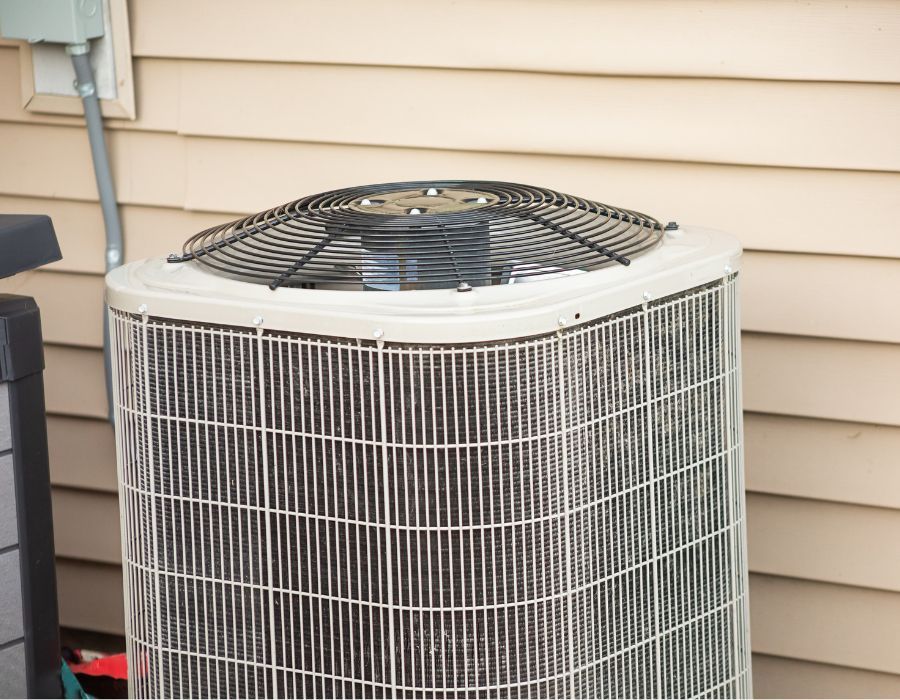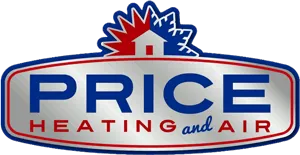The Best Time of Year to Replace Your AC Unit

An air conditioner is often a necessity, especially during sweltering summer months. With the average central AC unit costing around $5,900, replacing one is a significant investment. While the need for a new AC can arise at any time, the timing of your replacement can significantly impact your wallet and overall experience.
So, when is the best time of year to replace your AC unit? Let’s dive into the key factors so you get the most for your money and minimize disruption to your comfort.
Table of Contents
ToggleUnderstanding Your AC Unit’s Lifespan
Like any appliance, your air conditioner also has a lifespan, and understanding when it’s nearing the end of its road can save you headaches and money down the line.
The average central air conditioner functions properly for about 15 to 20 years. But this is just a ballpark figure. Factors like the unit’s quality, how well it’s maintained, and the local climate can significantly influence its longevity. So, when is your AC waving its white flag? A few common signs can tip you off.
- Frequent Repairs: Is your HVAC technician on speed dial? Frequent malfunctions clearly indicate that your AC is struggling. Each repair is a temporary solution, and it’s likely only delaying the inevitable.
- Increased Energy Bills: A clear uptick in electricity consumption can be attributed to declining efficiency. While rising energy prices play a role, a sudden spike could signal that your unit is working overtime and losing its capability.
- Inadequate Cooling: If your home’s temperature remains inadequately cool despite adjustments to the thermostat, it may indicate a failing system.
Perks of Replacing Your AC Unit During Spring or Fall
Replacing your air conditioner during the shoulder seasons of spring or fall offers several compelling benefits. Here are some notable perks:
Lower Demand for HVAC Services
Lower demand for HVAC services means a more streamlined process. HVAC contractors are typically less booked during these periods, allowing for shorter wait times when scheduling appointments. This flexibility means you’re more likely to secure a convenient installation date without the stress of competing with numerous homeowners for limited availability.
Reduced demand often coincides with the potential for better pricing. HVAC companies may offer competitive rates or discounts to entice customers during low-demand periods. By shopping around and negotiating, you can potentially secure a better deal on your new AC unit and installation services.
Milder Weather Conditions
The comfort factor is another significant advantage. Replacing your AC during milder weather conditions minimizes discomfort associated with the installation process. You won’t be subjected to unbearable heat or cold while technicians work to replace your unit.
Time to Research and Plan
Spring and fall also provide ample time to research and plan your AC replacement. With less pressure to make an immediate decision, you can thoroughly compare different models, brands, and energy efficiency ratings. This way you can select a unit that matches your particular necessities and budget. Additionally, you’ll have sufficient time to secure any necessary permits or financing, ensuring a smooth installation process.
Potential for Manufacturer Rebates and Incentives
Replacing your AC during these periods increases your chances of benefiting from manufacturer rebates and incentives. Many HVAC manufacturers offer financial incentives to encourage homeowners to transition to more energy-efficient options. By taking advantage of these opportunities, you can offset the cost of your new AC unit and enjoy long-term energy savings.
Disadvantages of Replacing Your AC Unit During Summer and Winter
Replacing your AC unit during the height of summer or winter comes with its own set of challenges. Let’s explore some of them in more detail:
High Demand for HVAC Services
The peak seasons are precisely when HVAC systems are in the highest demand. This surge in requests leads to longer wait times and potential scheduling difficulties. Homeowners often find themselves competing for limited technician availability, resulting in delays and inconvenience.
Increased Prices
Due to the overwhelming demand, HVAC companies typically charge higher prices during peak seasons. The urgency to replace a failing AC unit can put homeowners in a vulnerable position, making them more susceptible to inflated costs.
Discomfort During Installation
Scheduling AC installation during extreme weather conditions can really alter your comfort. The intense heat of summer or the biting cold of winter can make the installation process uncomfortable and inconvenient for both you and the technicians.
Unwanted Emergency Replacements
A complete AC breakdown during a heatwave or cold snap necessitates an immediate replacement, leaving homeowners with little time to research options or secure the best deal. These emergency situations often lead to increased stress and higher costs as you scramble to find available services.
The Role of Climate in Determining the Best Replacement Time
Climate is very important when it comes to the optimal time to replace your AC unit. In regions with extreme summer temperatures, replacing your unit during the off-peak season (spring or fall) is even more important.
Conversely, in areas with milder climates, the pressure to replace your AC during the off-peak season may be less intense. However, taking advantage of potential cost savings and reduced wait times during these periods can still be beneficial.
At the end of the day, the most suitable time to replace your AC unit depends on a combination of factors, including your specific climate, personal preferences, and budget. Carefully considering these elements will help you maximize comfort and minimize costs.
Considerations for Selecting a Replacement Unit
Selecting the right AC unit is a crucial decision impacting both comfort and finances. Several key factors should guide your choice.
Energy Efficiency
Energy efficiency is one of the major aspects to take into account. Opt for models with high SEER scores. An elevated SEER rating means that the unit operates better and results in lower bills over time.
Unit Size and Capacity
Properly sizing your AC unit is necessary for maximum efficiency. A unit that is too small will fail to cool the space, while a large unit can lead to short cycling, reduced efficiency, and more damage. Consult with an HVAC professional to assess the correct size.
Type of AC Unit
There are several AC unit types available to opt for. Still, the ideal selection depends on your needs and preferences. When making the decision, have in mind your home’s layout, budget, and cooling requirements.
Maintenance Tips for Extending AC Lifespan
Proactive maintenance is key to maximizing the lifespan and efficiency of your air conditioner. This way you can prolong your unit’s life and potentially save on energy costs.
Regular Filter Changes
Obstructed air filters hinder airflow and diminish your AC’s performance. Monitor your filter frequently and replace it when needed, usually within 30 to 90 days. A clean filter ensures optimal performance and prevents contaminators from moving around your living space.
Annual Tune-Ups
It’s important to schedule annual maintenance inspections with a skilled HVAC technician. Regular tune-ups involve cleaning, examining, and fine-tuning system parts to maintain peak performance.
Proper Thermostat Usage
Utilize your thermostat wisely to mitigate excessive stress on your AC unit. Avoid extreme temperature settings and consider investing in a smart or programmable thermostat to better manage electricity consumption.
Outdoor Unit Care
The outdoor condenser unit also requires attentio. Ensure the space around the unit is free of debris and overgrowth. Regular cleaning of the condenser coils improves airflow and prevents overheating.
Manage Your AC Replacement
Timing your decision for your AC unit replacement can significantly impact your experience. Taking advantage of the shoulder seasons can often lead to cost savings, shorter wait times, and a more comfortable installation process.
If you’re unsure about the condition of your AC or need expert advice on replacement options, contact Price Heating and Air in Muscle Shoals, Alabama and schedule a consultation today. Don’t let a failing AC disrupt your comfort.
